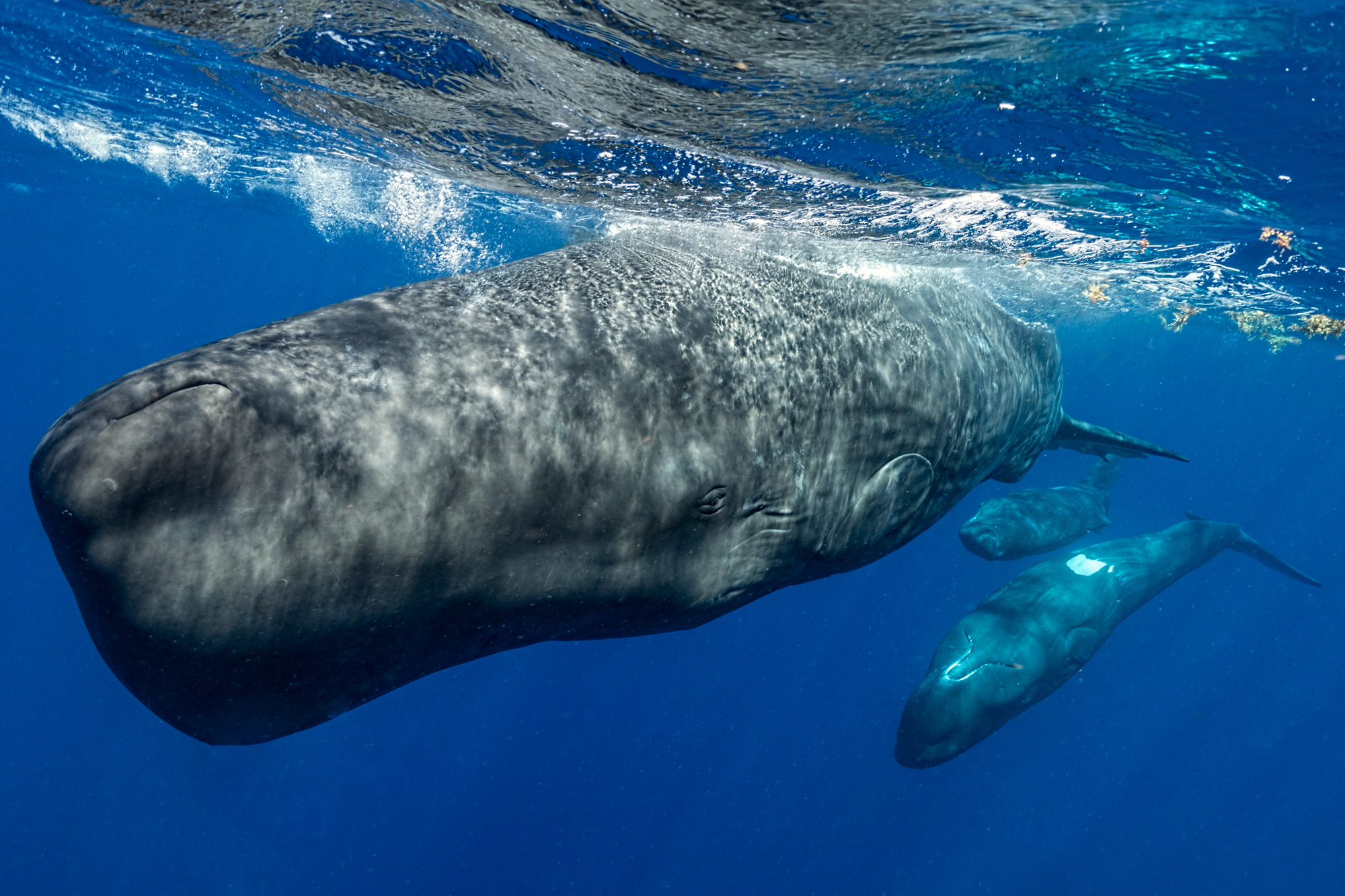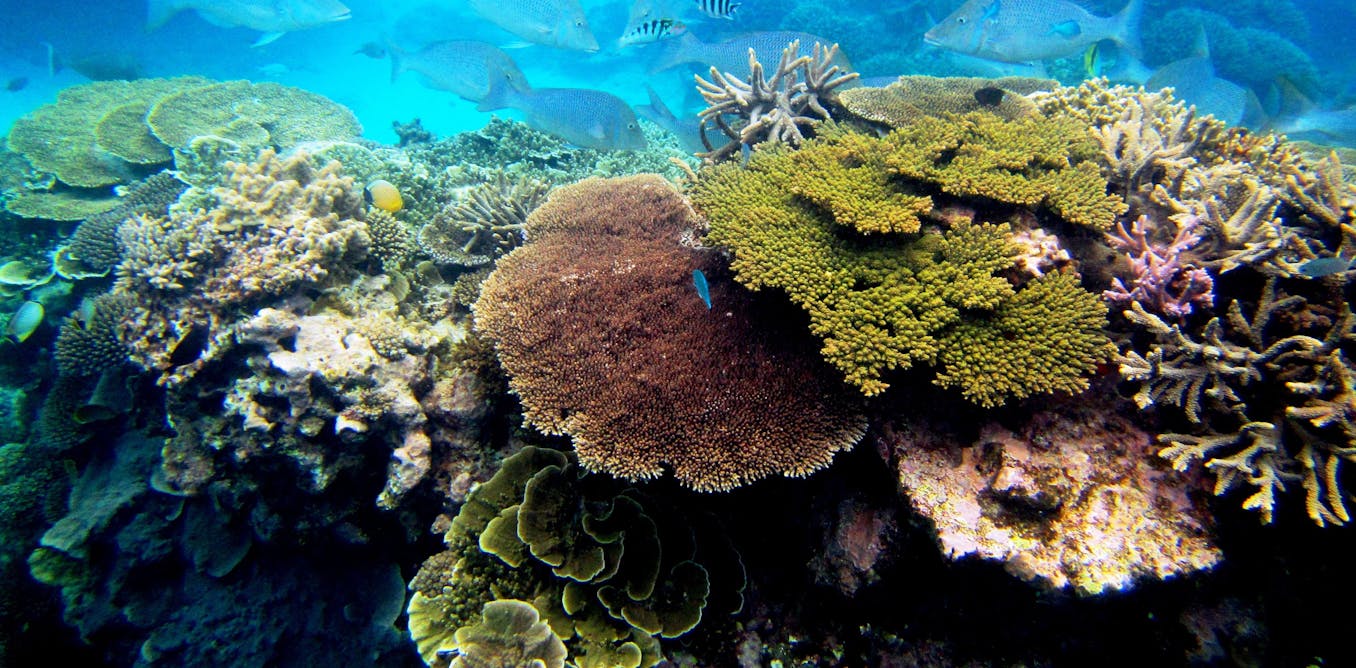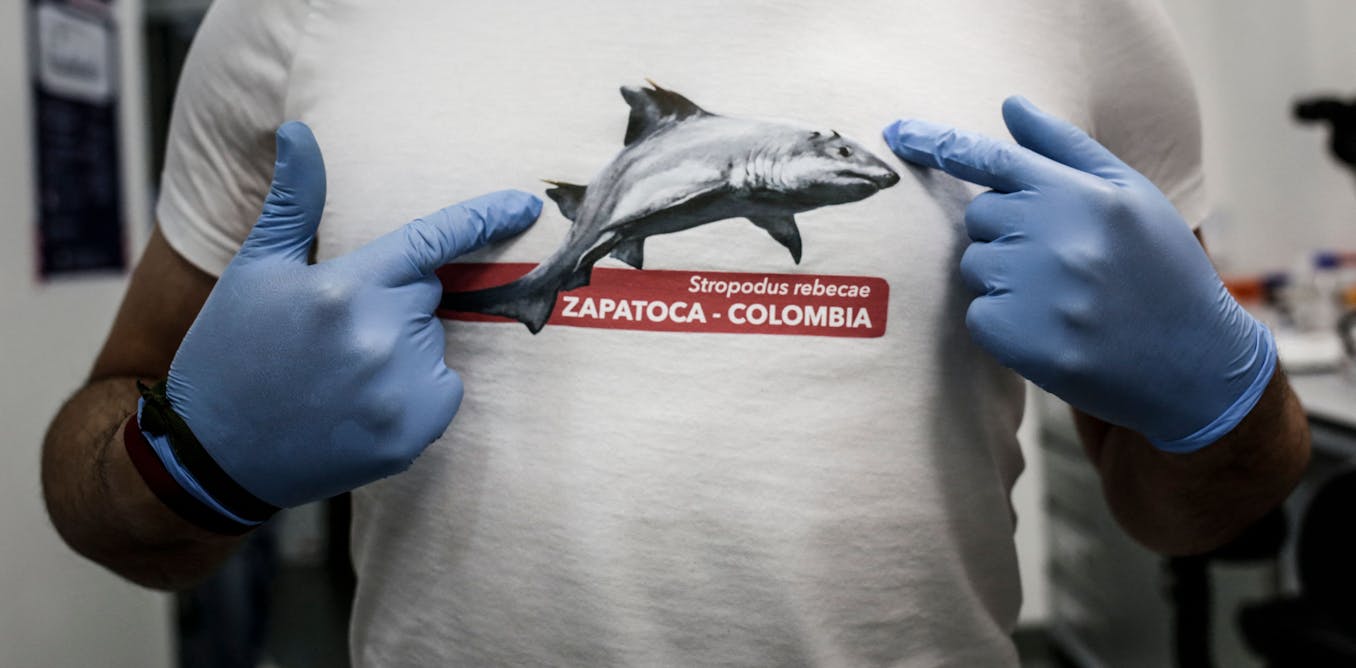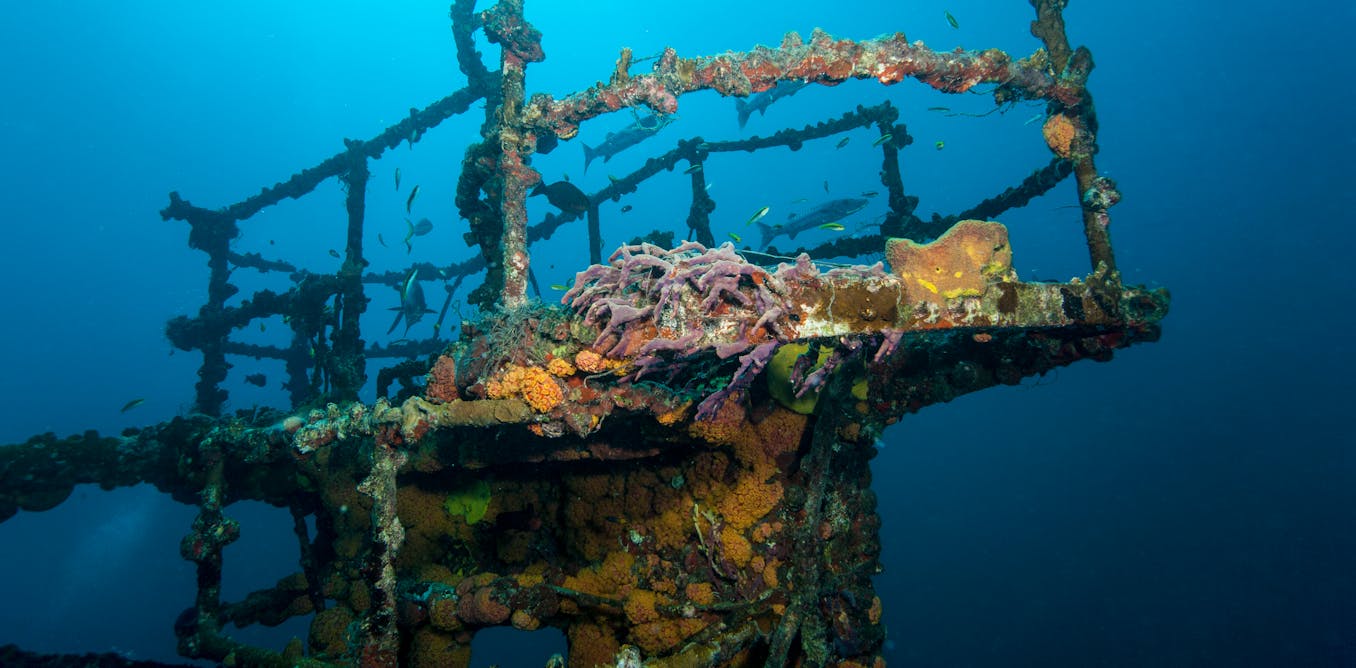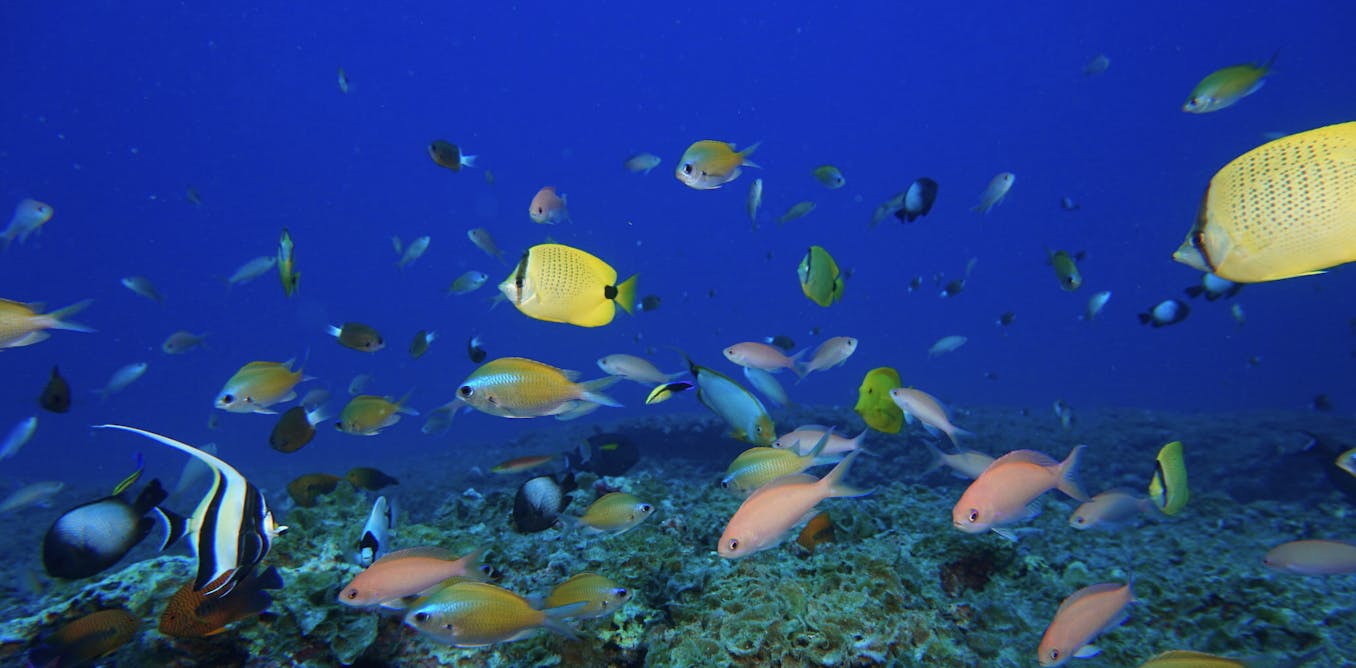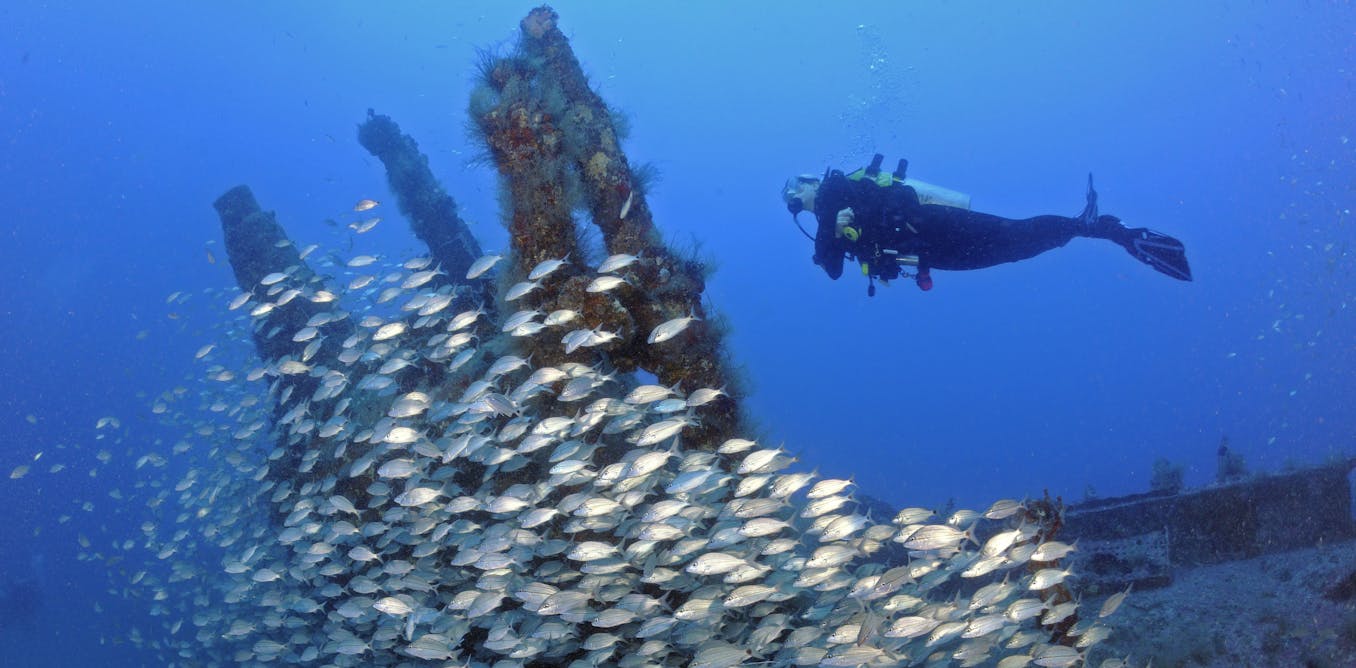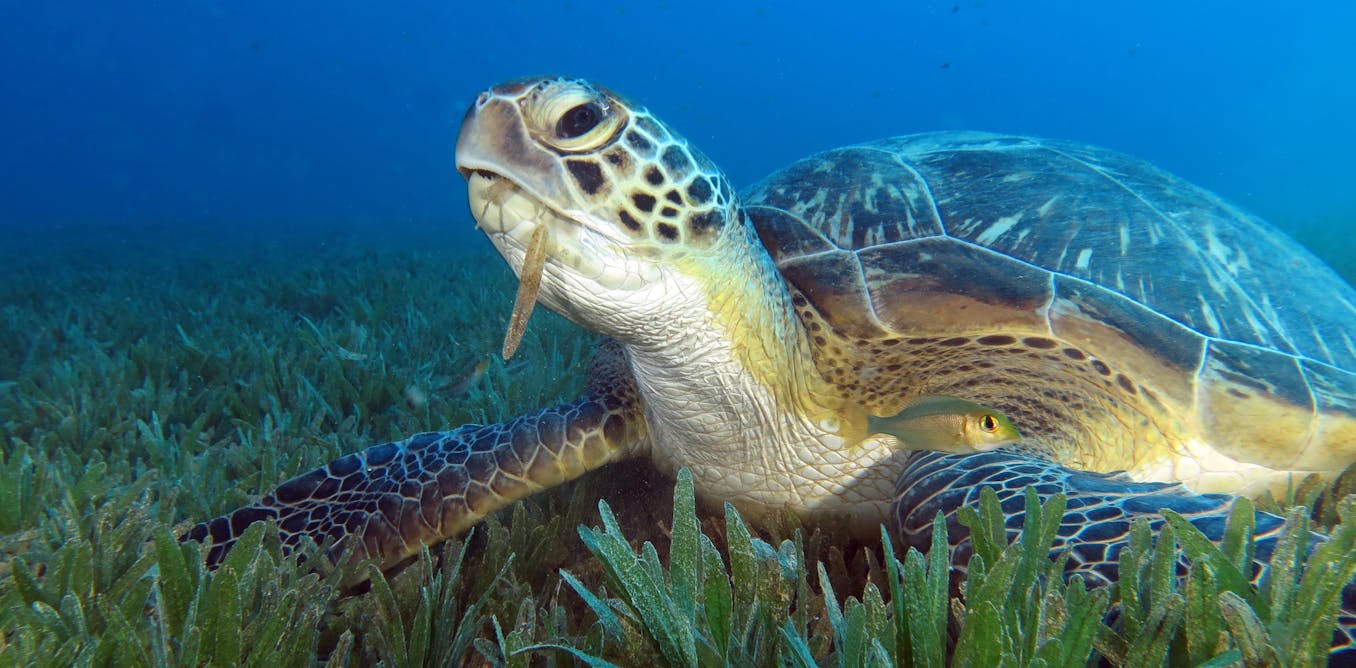As climate change and pollution imperil coral reefs, scientists are deep-freezing corals to repopulate future oceans
Just as the world’s zoos breed critically endangered animals in captivity to repopulate the wild, scientists are building a global effort to freeze corals for reef restoration.
March 28, 2024 • ~11 min
Surviving fishing gear entanglement isn’t enough for endangered right whales – females still don’t breed afterward
Even when female North Atlantic right whales survive entanglement in fishing gear, it may affect their future ability to breed, increasing the pressure on this critically endangered species.
March 13, 2024 • ~10 min
Rare access to hammerhead shark embryos reveals secrets of its unique head development
Because hammerhead sharks give birth to live young, studying their embryonic development is much more complicated than harvesting some eggs and watching them develop in real time.
March 8, 2024 • ~5 min
‘Jaws’ portrayed sharks as monsters 50 years ago, but it also inspired a generation of shark scientists
‘Jaws,’ published in 1974, terrified the public of sharks, but it also brought shark research into the scientific mainstream.
Jan. 31, 2024 • ~10 min
Not all underwater reefs are made of coral − the US has created artificial reefs from sunken ships, radio towers, boxcars and even voting machines
Artificial reefs are structures that humans put in place underwater that create habitat for sea life. A new study shows for the first time how much of the US ocean floor they cover.
Jan. 18, 2024 • ~9 min
I set out to investigate where silky sharks travel − and by chance documented a shark's amazing power to regenerate its sabotaged fin
After scientists’ GPS tracking tag was violently removed from one shark’s dorsal fin, they were in for a surprise: The wound didn’t just heal, but the missing tissue grew back.
Jan. 9, 2024 • ~8 min
What happens to the ocean if we take out all the fish? A marine ecologist explains the complex roles fish play in their ecosystem
There are so many fish in the ocean that if you took them out, important habitats and food sources for many creatures would be lost.
Jan. 8, 2024 • ~6 min
Shipwrecks teem with underwater life, from microbes to sharks
When ships sink, they add artificial structures to the seafloor that can quickly become diverse, ecologically important underwater communities.
Dec. 19, 2023 • ~9 min
/
7

